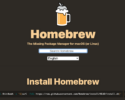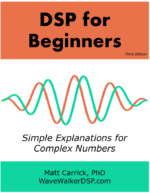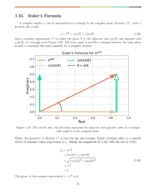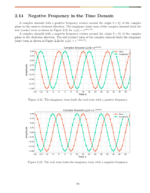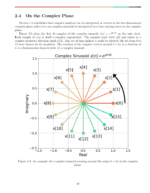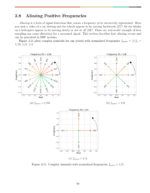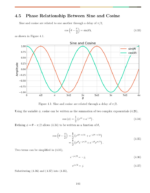Table of Contents
Introduction
A resume is an advertisement for an interview, no more, no less. In this blog I’ll describe the basics behind writing an engineering resume, including a simple format and how to use action words to make your resume more interesting and exciting.
Before getting started on the content of the resume, let’s first put ourselves in the shoes of the recruiter who is going to review your resume.
More posts to enjoy:
HR Recruiter's Perspective
Your resume is going to end up on the desk of a human resources recruiter who could see 1,000+ resumes a year depending on the size of the organization. Keep in mind that they are going to see 999+ other applicants so you want to reduce all possible friction points in your resume. Having an easy to read resume is a great first impression.
You want the HR recruiter to be able to quickly scan your resume, determine what your general background and skillset is so they can figure out what departments or teams you would work well on. Your HR recruiter is not going to have an engineering degree so they are not going to be able to differentiate between the fine minutia between your skills with FIR versus IIR filtering. However, they do need to be able to find the following core information about you:
- Education: what field (ex: electrical engineering), what degree (ex: masters), where did you go to school (ex: state university)
- Prior Work Experience: what company or organization and for how long
- Skills: do you write software? do you design antennas? do you do PCB design?
Your resume needs to be formatted such that the information can be easy to find.
A Simple Engineering Resume Format
Having a simple format makes it easy for the recruiter and hiring manager to quickly assess that you have value and should be hired. I use the following basic format:
First-Name Last-Name
yourname@email.com
000-000-0000
Objective statement or resume summary ( if desired )
Education:
MS Electrical Engineering, State University, Expected Graduation Fall/Spring 20XX
Thesis/Dissertation title or topic ( if desired )
GPA: 3.X
BS Electrical Engineering, State University, 20XX
GPA: 3.X
Most Recent Employer Name, Office Location City, State: Start Month/Start Year – End Month/End Year
Job Title
- Most important bullet point about accomplishment at job
- Second most important bullet point about accomplishment at job
- Third most important bullet point about accomplishment at job
- Fourth most important bullet point about accomplishment at job
Second Most Recent Employer Name, Office Location City, State: Start Month/Start Year – End Month/End Year
Job Title
- Most important bullet point about accomplishment at job
- Second most important bullet point about accomplishment at job
- Third most important bullet point about accomplishment at job
- Fourth most important bullet point about accomplishment at job
( Additional sections as needed or as desired)
Patents and Publications
- Patent title and number, Date
- Journal paper title, Publishing Journal Name, Date
- Conference paper title, Conference Name, Date
The formatting is important when handing out paper resumes at job fairs and other in person applications, but you may be required to submit your resume information onto a format-less web form if you are applying online.
Now that the structure is outlined it’s time to fill in the details about your accomplishments in a way that communicates your value.
Action Words
You want your future employer to be able to visualize you working in their office or laboratory. The best way to do this is to use action words. The following is a list of great action words:
- Designed
- Developed
- Implemented
- Analyzed
- Created
- Demonstrated
- Debugged
- Deployed
- Solved
- Published
- Briefed
- Lead
I am a huge fan of thesaurus.com and use it all the time when writing. Sometimes you may want different ways to say “created” and the thesaurus is a great way to generate some options (produced, manufactured, assembled, etc.)
The following are some example formats to use when describing your work with a resume:
- Created a system that solved [customer name]’s problem through [description]
- Developed [software name] which sold [number] of units with [revenue number]
- Solved the antenna design error for [customer name] which increased the gain by 3 dB
- Lead a team of engineers which analyzed the data sets for [customer name] which lead to a follow on project worth [revenue number]
- Implemented a novel filtering structure which was submitted for a utility patent
- Published the findings from [research project] in a conference paper at [conference name]
Some words are better than others when writing a resume. I try and avoid words such as “helped”, “assisted”, or “worked on.” They don’t carry the same weight as the action words above.
This is a great video on action words that goes into more detail:
Objective Statement for an Engineering Resume
I’m an Electrical Engineer with 10 years of experience doing Digital Signal Processing (DSP) pursuing a career in demodulator design and implementation. I have experience implementing DSP algorithms in both software defined radios (SDR) and FPGAs.
Note that the objective statement also needs to have action words in it (ex: design, implementation).
Resume Length
Keep it short. A resume is an advertisement for a job interview and doesn’t need to list every single detail about the projects you have worked on.
A resume has a one page minimum. Every 10 years after undergrad graduation you can add a quarter of a page to the length. if you’re still in undergraduate it needs to be one page, no more no less. After 20 years in industry your resume your maximum page length is 1.5 pages.
Tidbits for an Engineering Resume
- Get a professional email address such as yourname@yahoo.com or yourname@school.edu. Please do not use your personal email address if it looks like ladygaga2002@gmail.com or bassfisherman@hotmail.com.
- Run your resume through a spell checker.
- You don’t need to have your home address on your resume, your name and contact information is good enough.
- Don’t add hobbies or other irrelevant information. You won’t be hired because you go rock climbing on the weekends and instead you’re losing valuable space you could use otherwise to communicate your value.
Conclusion
A resume is an advertisement for a job interview. Your educational and employment information should be easily found by a HR recruiter so they can forward on your resume to the proper hiring manager. Focusing on action words such as “developed” or “designed” makes your resume more appealing and thus more likely you will get hired.
More posts to enjoy:
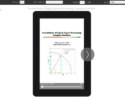
![Figure 3: The complex sinusoid e(j2 pi (2/4) n) only contains energy at X[2].](https://www.wavewalkerdsp.com/wp-content/uploads/wordpress-popular-posts/8136-featured-125x100.png)
